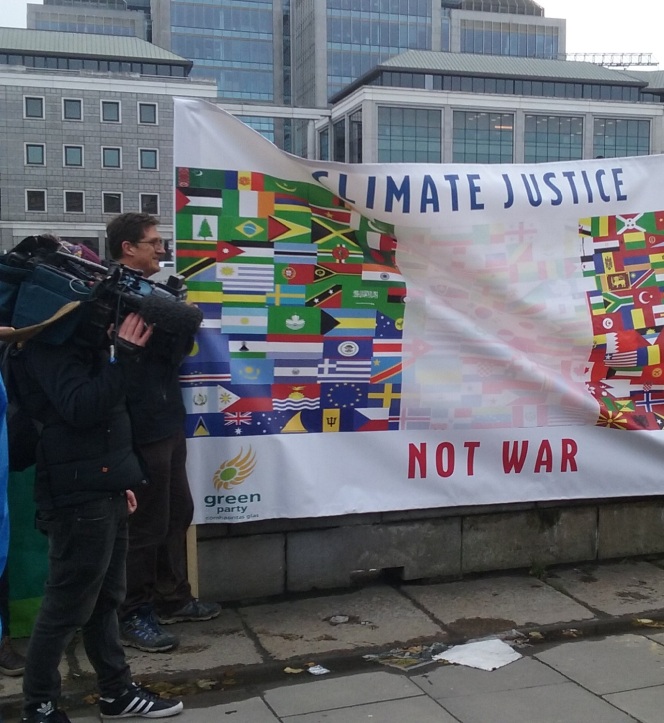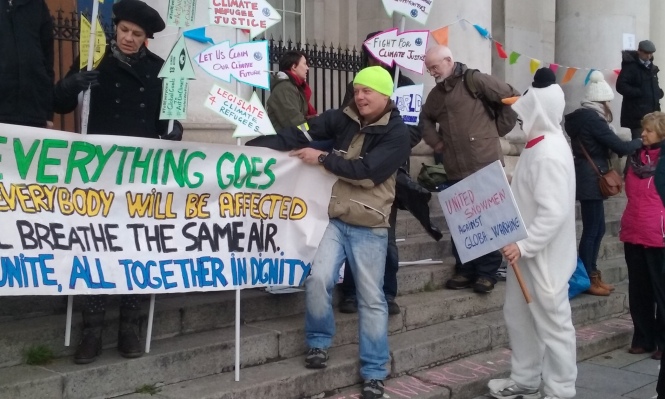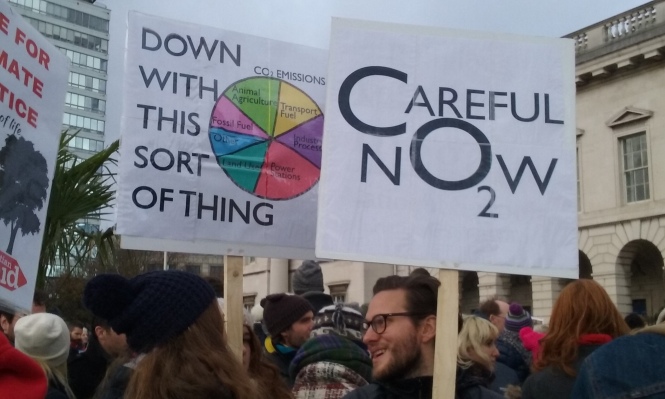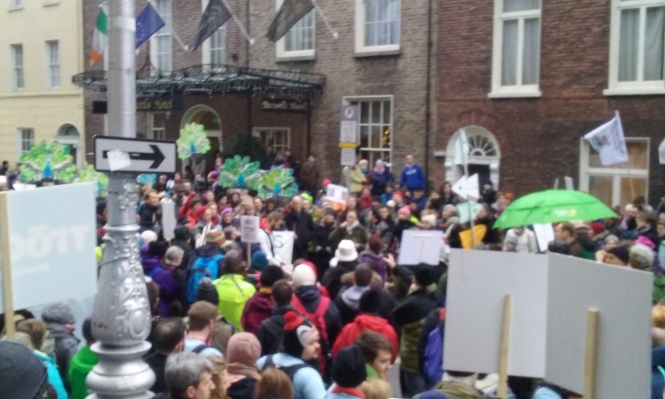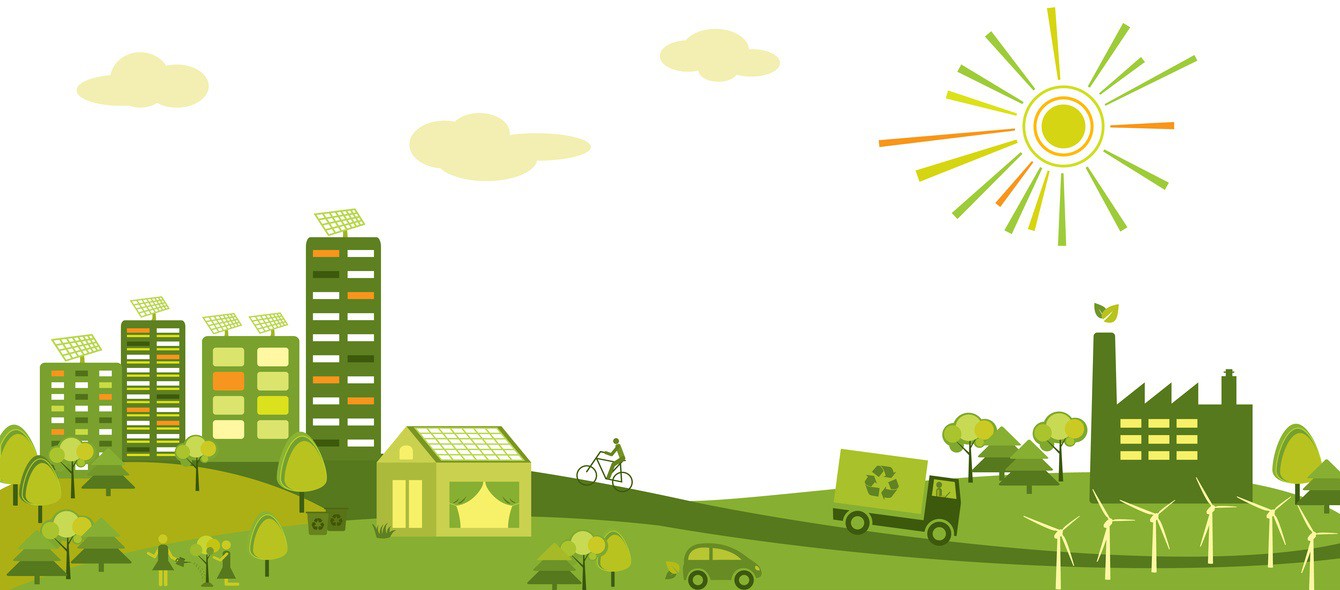On the 3rd of November, an event called the National Sustainability Summit was held in Dublin (http://www.sustainabilitysummit.ie/). The aim of the event, attended by people from academia, NGOs, the public sector, and primarily, business, was to “create a forum where business leaders, innovators, regulators and government can examine both the commercial opportunities in the emerging green economy as well as the challenges in achieving sustainability goals”.
The conference incorporated a main stage and several workshop zones, all of which hosted up to 16 speakers each. In all there was a mind-boggling 80 speakers during the day, grouped under the broad headings of Food & Agriculture, Energy, Data, Construction, Water, Wastewater & Water Efficiency. Transport Supply Chain & Logistics, CSR & Stakeholder Engagement and Environmental Stewardship.
The main stage was chaired by Paul Cunningham, editor of RTE’s The Week in Politics, who stated in his introductory remarks his intention to be “unashamedly positive and upbeat” about the “sustainability agenda”. He was followed by the French Ambassador to Ireland, who demonstrated an impressive line in business-speak, urging people to “exploit this new economy” which offered “invaluable benefits” for business.
Also on the main stage in the morning was Michael Rea, COO of the UK-based NGO the Carbon Trust, who gave a fascinating talk on the organisation’s new report on business and climate change, Titans or Titanic (http://www.carbontrust.com/resources/reports/advice/titans-or-titanics/). The report is based on in-depth interviews with businesspeople and business experts around the world and reveals some interesting statistics. For example, half of the respondents believe that their business models will require “fundamental change” as a result of climate change, but many US respondents in particular do not feel that climate change represents a significant risk to their business. Rea’s conclusion was that business is effective at managing within its planning horizon but not at planning for an “uncertain future”. He suggested that Boards do not have SD on their agenda as there is “no clear framework” for measurement. In this vein, Carbon Trust have developed a “Value at Stake” framework, for more see http://www.carbontrust.com/media/84952/ctc602-climate-change-and-shareholder-value.pdf.
The main event of the day was a panel discussion entitled “Creating a Sustainable Ireland: the Main Challenges and Opportunities”, chaired by Paul Cunningham and featuring Micheal Rea, Eamonn Ryan of the Green Party, Frank McGovern of the EPA and David Fitzpatrick of Dairygold. The discussion centered around policy for a “sustainable” Ireland, and Eamonn Ryan was the most vocal of the panelists. He urged long-term thinking, criticised the government’s Climate Bill as “not ambitious enough” and stressed that we cannot “keep burning peat”. He also mentioned the advocacy organisation E3G, which has done some interesting work (http://www.e3g.org/) and the EU’s “Energy Union” project (http://ec.europa.eu/priorities/energy-union/index_en.htm).
Agriculture featured often in the panel discussion, and Padraig Brennan of Bord Bia gave a very interesting talk on the organisation’s work on farm “Sustainability Assessments” (http://www.origingreen.ie/farms/measuring-sustainability-on-our-farms/). He stressed the need to make the issues”tangible” to farmers to get them to engage. While the work is admirable, however, Brennan was clear that the key aim is to “win business for the industry” and suggested that “sustainable equals efficient”, so it is not clear if the assessments go much beyond eco-efficiency and the the business case.
Other snippets from the day:
Robert Moss from An Taisce highlighted the National Biodiversity Data Centre, the aim of which is to create a “biodiversity map” of Ireland. People can use the website to record biodiversity in their area and also link to a global biodiversity database which can be searched by species and country – http://www.biodiversityireland.ie/.
Jennifer Casey of Business in the Community Ireland spoke of the “circular economy” and the Irish Government’s 2014 National Action Plan on CSR (https://www.djei.ie/en/News-And-Events/Department-News/2014/April/Minister-Bruton-launches-National-Plan-on-Corporate-Social-Responsibility.html). She also discussed their Business Working Responsibly Mark, which is based on ISO26000 (http://www.iso.org/iso/home/standards/iso26000.htm).
Michael Kelly of social enterprise GIY (Grow It Yourself) talked about their Grow at Work program (https://www.giyinternational.org/pages/giy_at_work) and also mentioned Michael Pollan’s interesting work on food (http://michaelpollan.com/books/).
Declan White of Enterprise Ireland highlighted the organisation’s “GreenStart” programme which offers funds to SMEs to implement “environmental best practice” (http://www.enterprise-ireland.com/EI_Corporate/en/funding-supports/Company/Esetablish-SME-Funding/GreenStart.html)
Alan Hendry, Head of Sustainability at Jacobs Engineering (http://www.jacobs.com/workforus/about/index.aspx#Sustainability) spoke of developing low-carbon infrastructure (LCI) in Scotland. Ten LCI projects have been selected based on the Scottish emissions breakdown, such as district heating schemes, retrofit of public buildings and upgrading the rail network. Summaries of the projects, which make interesting reading, are available here: https://scotlandswayahead.org.uk/.
Victor Branagan of consultancy SustainEd (http://www.sustained.ie/) talked about “new” business models for sustainability. Along with the Natural Step, he mentioned Holacracy (http://www.holacracy.org/) and Frederic Laloux’ Reinventing Organisations (http://www.reinventingorganizations.com/).
Rebecca Maughan, a lecturer in the Business School at University College Dublin, presented her research on internal legitimacy for sustainability reporting. She noted that her case study company stopped reporting as their external stakeholders were “not interested”, and the organisation’s sustainability policies were driven by legitimacy with internal stakeholders.
Another UCD Academic, this time from the School of Geography, Planning and Environmental Policy, Craig Bullock, spoke of the benefits of “ecosystem services” to the private sector. He stressed that the concept of ecosystem services is an anthropogenic one, and not a proxy for the intrinsic value of nature. Bullock referenced the “cascade model” of ecosystem services and recommended this work by Haines-Young and Potschin (2010) – https://www.pik-potsdam.de/news/public-events/archiv/alter-net/former-ss/2009/10.09.2009/10.9.-haines-young/literature/haines-young-potschin_2009_bes_2.pdf. He also drew attention to the work of the Intergovernmental Platform on Biodiversity and Ecosystem Services, which has some great case studies on its impact assessments here: http://catalog.ipbes.net/
As a final word, the overall sense of the summit from a participant perspective was that it was difficult to get a sense of it. The mix of academic and business presenters was a plus, but heavily weighted in favour of business, with no academic speakers on the main stage. It was also unclear who initiated and organised the event – government, business? The best guess from participants was a private events management company.
The Summit was a “big picture” event, proclaiming to “secure Ireland’s future”. The dominant sense, though, was of a country throwing itself headfirst into the “sustainability industry” without really thinking about what, if anything, that might mean.
